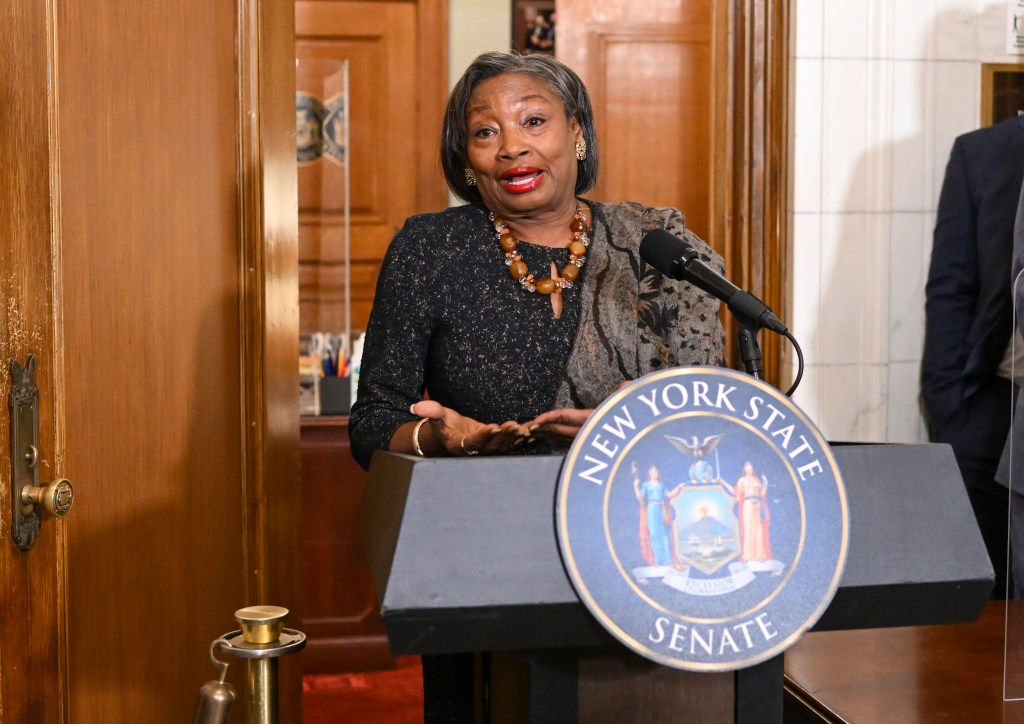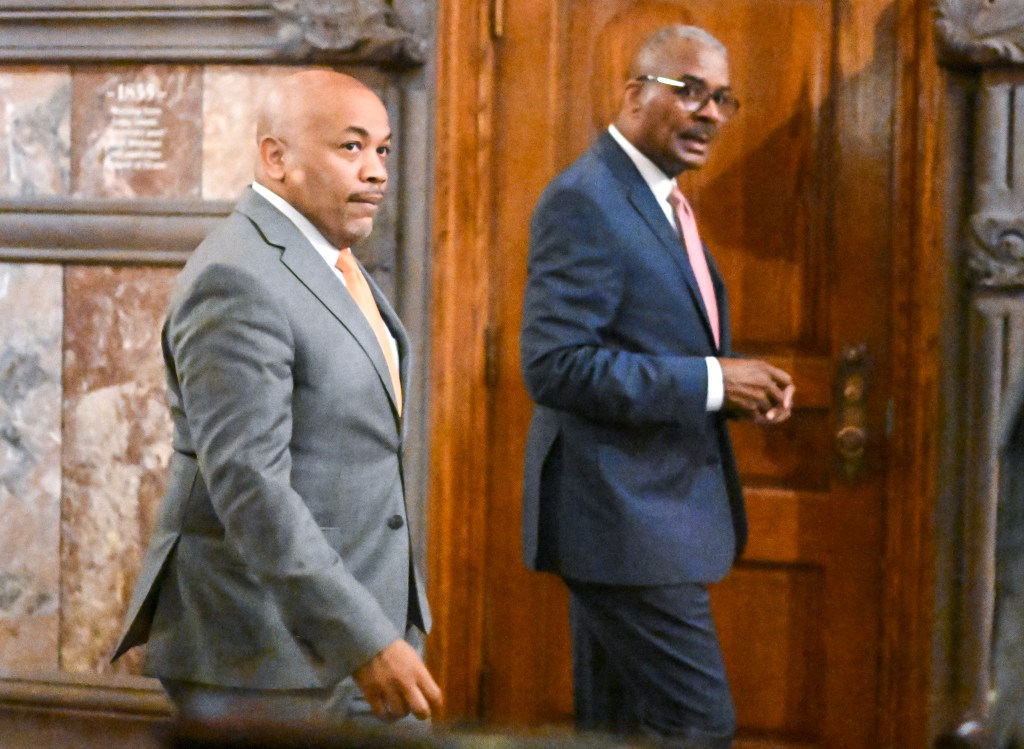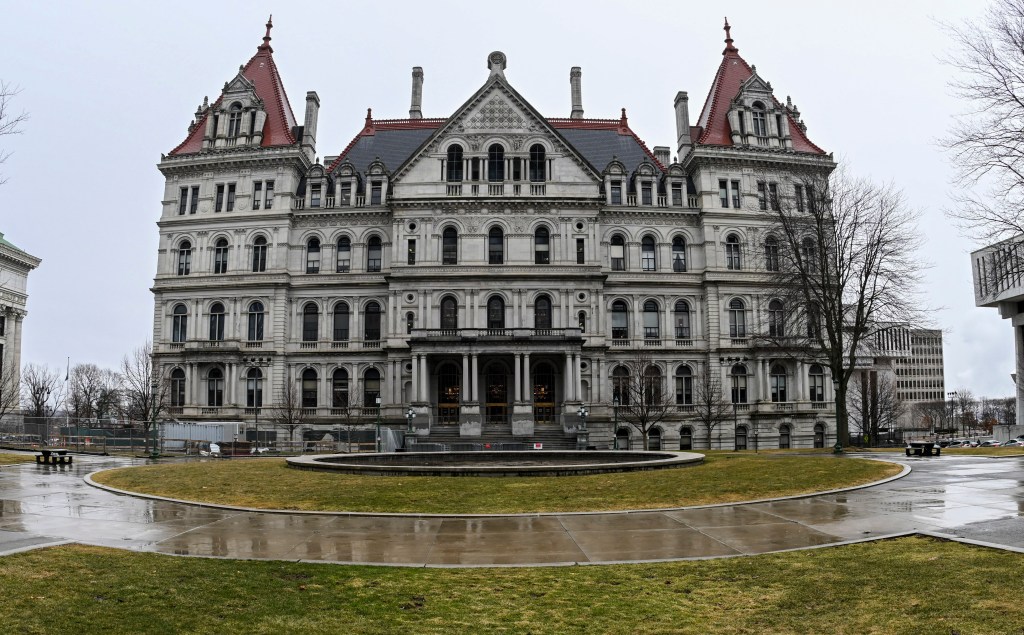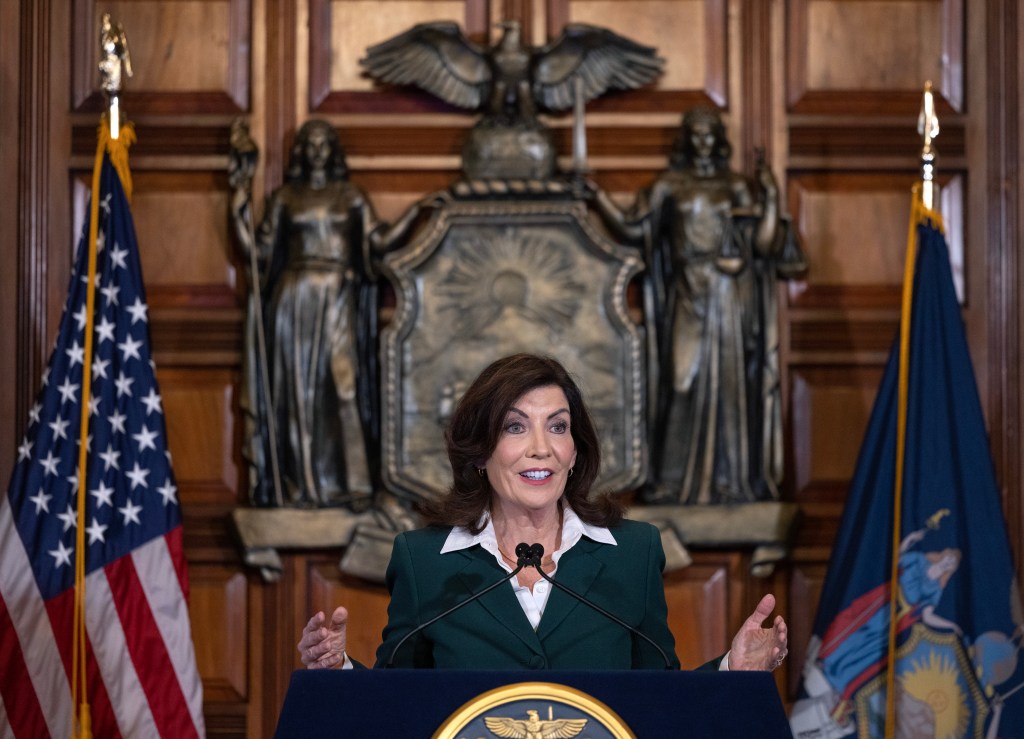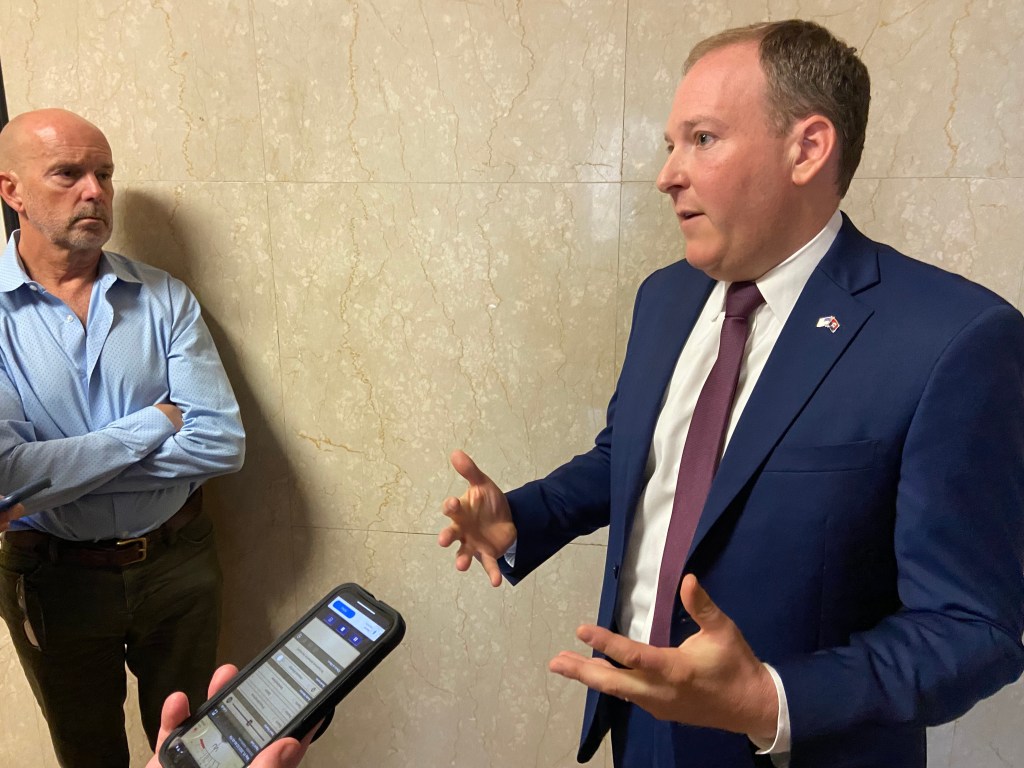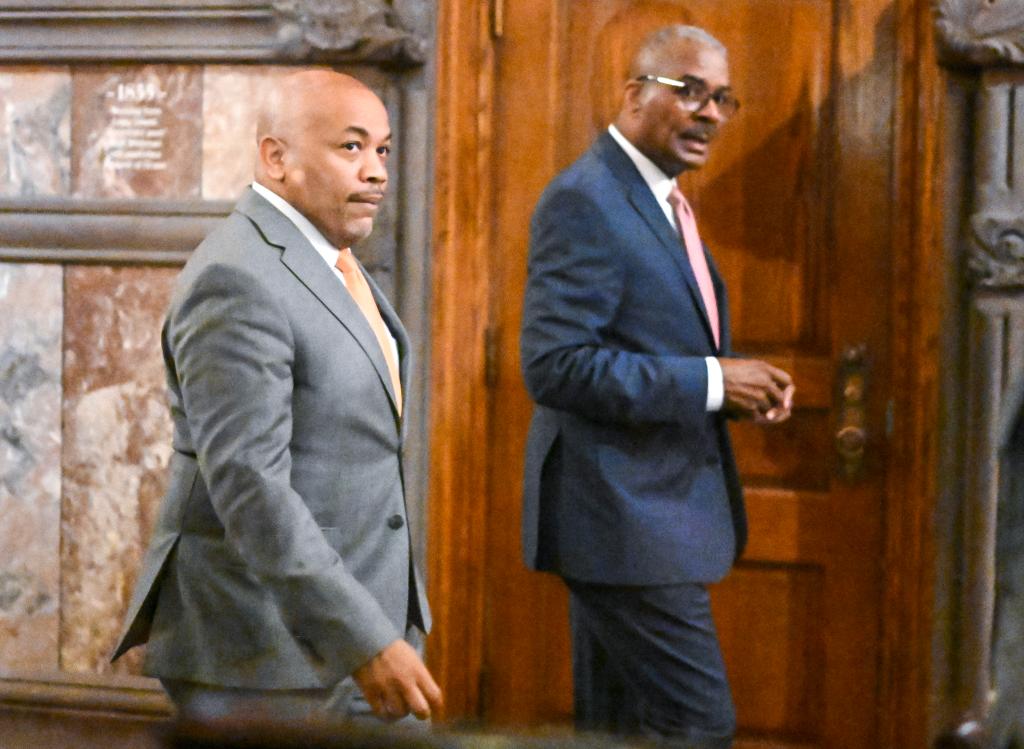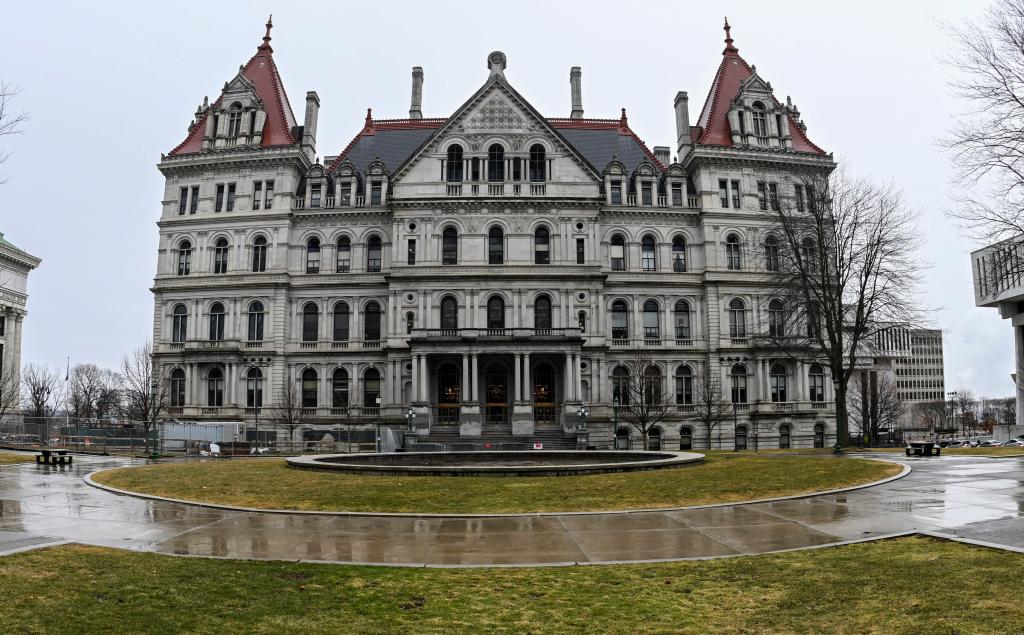NY’s long, $229B budget nightmare nearly over as lawmakers finally begin voting
ALBANY – New York is set to get a new budget this week as state lawmakers finally began voting Monday to enact a spending plan packed with controversial proposals such as bail overhauls and expanding charter schools.
The state Senate and Assembly started passing budget bills to enact the proposed $229 billion spending plan, which has been weighed down by divisive issues.
“This was an extremely policy-laden budget,” said state Senate Majority Leader Andrea Stewart-Cousins (D-Yonkers). “It made it very difficult to just go quickly through those things.”
Albany Democrats are planning to approve a final budget extender Monday night to keep state government running during final budget votes taking place well after they blew the original April 1 deadline.
But the passage of several budget bills by the evening hours demonstrated that the end was indeed coming for a tumultuous budget process days after Gov. Kathy Hochul on Friday announced a “conceptual” deal with lawmakers.
“What was important is not a race to a deadline, but a race to the right results,” Hochul said at a Capitol press conference while downplaying the importance of overseeing the tardiest state budget in more than a decade.
A final state budget will loosen bail rules by nixing a state law for serious crimes that judges impose the “least conditions” on criminal defendants to ensure they show up for their day in court.
Hochul also secured changes to allow 14 more charter schools in New York City, as well as a minimum-wage increase, more money for public transit and $1 billion to help New York City accommodate a deluge of migrants from the southern Border.
The final spending deal also includes a controversial $455 million loan for Belmont racetrack along with a massive expansion and extension of the existing state tax credit for film and TV productions – ideas that critics say put taxpayer dollars at big risk.
Supporters say they will bring crucial economic activity to downstate in particular.
“I live in a place that is now been renamed Hollywood on the Hudson,” Stewart-Cousins told reporters about her Yonkers-based district that has attracted film and TV shoots in recent years.
“We continue to compete with California and everywhere else to get our shows here, and [productions] need a certain amount of vision about where they can be in the future.”
A typical state budget contains 10 bills, five of which are predominantly fiscal, with the other five on policy topics such as transportation, economic development, and public safety.
Nine of those bills had been introduced by Monday afternoon – including debt service legislation passed more than a month ago – but with legislative language omitted for touchy topics such as loosening limits on cash bail and a future ban on gas hook-ups in new buildings.
Final legislative language on those fronts – as well as the deal to expand charter schools in the Big Apple – will come in a nominal “Education, Labor and Family Assistance” bill that will serve as an omnibus bill known by
“We’re pretty much done,” Stewart-Cousins said Monday when asked by The Post whether there were any remaining issues in budget talks.
Republicans had warned that Democrats would lean on a parliamentary maneuver known as a “message of necessity” from the governor to evade a legislative rule that bills sit for three days before getting a final vote – an approach used as well when the Republicans held the state Senate years ago.
“The only way to ensure a transparent budget and bring trust back to this process is to allow bills to age properly per the constitutionally required three-day aging period following the introduction of a bill,” state Assemblyman Ed Ra (R-Garden City) said last week.
Hochul held up a final budget for weeks while seeking concessions from state Assembly Speaker Carl Heastie (D-Bronx) and Stewart-Cousins on two issues in particular – bail and a plan to build 800,000 new housing units statewide by overriding local zoning laws.
The embattled governor eventually ditched her housing proposal after fierce resistance from suburban lawmakers, but she scored partial wins on bail and charter schools while holding the line against progressive demands to raise income taxes on the rich.
“There certainly was an attitude that the governor had from the outset that there was not a need to do that,” Stewart-Cousins said.
Enactment of a new budget could give Hochul a new lease on political life after the bruising months that followed her November win as the first elected female governor in state history.
State Senate Democrats dealt her a humiliating defeat in February by voting down her centrist pick to lead New York’s highest court before weeks of budget battles began to heat up.
The resignation of Hochul’s Colorado-based shadow political adviser on Sunday was one more sign she has been looking for a rebrand after the mixed wins from budget season.
But there was at least one physical reminder at the Capitol – 2022 Republican gubernatorial nominee Lee Zeldin – on Monday that showed her past will not be so easy to escape.
“This can’t be the new normal where budgets are being finalized five weeks or more later,” said Zeldin, who lost to Hochul by a 53% to 47% margin, to reporters while contrasting this year’s spending plan with the on-time budgets passed while he served in a Republican-controlled state Senate years ago.
